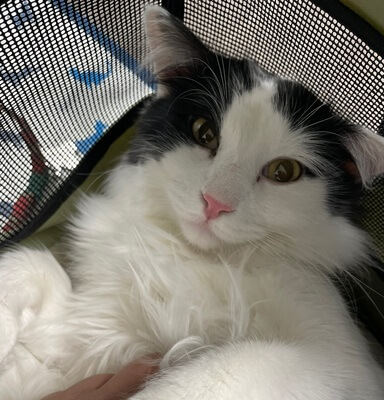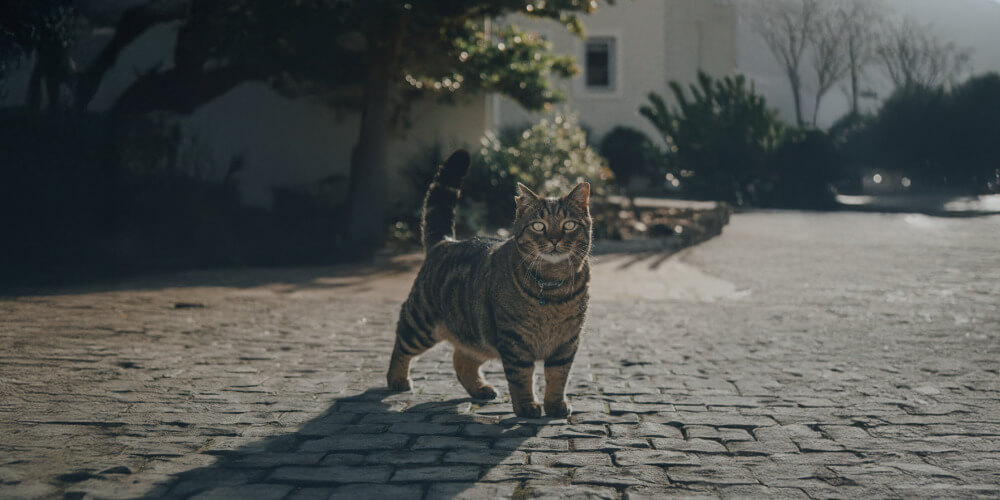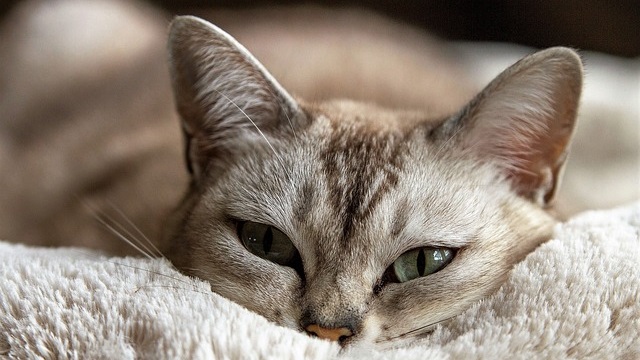Why Is My Cat Peeing Outside the Litter Box? 5 Common Reasons and How to Fix It
You and your cat share a special bond, and special is its bond with cleanliness. Few other animals are like our beloved cats when it comes to hygiene. Therefore, the owners get shocked when they suddenly start urinating outside the litter box. This behavior can be concerning and often leaves you wondering, “Why is my cat peeing outside the litter box?”
There’s always an underlying reason: medical issues, stress, or even litter box preference. It’s vital to identify the root cause early and prevent this practice from becoming a habit. Cat parents must pay attention to changes in routine, bathroom frequency, and demeanor to rule out possibilities and find the real issue.
You should also consider using Maven Pet to help you track your cat’s urinary behavior and detect potential health concerns before they become acute. Our pet smart collar has a monitoring system that allows cat parents to stay ahead of problems and guarantees their feline friend remains healthy and happy.
- Identify the root cause of your cat's urination issues, such as medical problems, stress, or litter box preferences.
- Common medical issues include urinary tract infections, kidney disease, and arthritis; visit a vet for diagnosis.
- Stressful changes in the environment can lead to urination outside the box; maintain routines and create safe spaces.
- Litter box preferences are crucial; ensure cleanliness, suitable litter type, and appropriate box size and placement.
- Address urination behavior promptly; clean areas thoroughly, provide adequate litter boxes, and reduce household stressors.
Common Reasons Cats Pee Outside the Litter Box

If you are among the cat owners asking yourself, “Why is my cat peeing on my bed?” or “Why has my cat stopped using the litter box?” don’t ever think that your kitty does it out of spite. Cats do not behave this way normally, and this behavior signals something is wrong.
Below are five common reasons your cat may be peeing in unwanted places and what you can do to fix it.
Medical Issues
Medical conditions like urinary tract infections, kidney disease, diabetes, arthritis, obesity, age-related brain function, or bladder stones can cause discomfort and make urinating painful for cats. If your cat struggles to pee, pees more frequently, drinks excessive water, or you notice blood in their urine, it’s a sign that something is wrong.
It is possible that some cats link their litter tray to pain and start urinating elsewhere. Therefore, a medical issue could be the cause, and you must not leave it untreated. The best solution is to visit the vet immediately for a proper diagnosis. Some medications and slight dietary changes will make your furball feel better again.
“Every time Umi is hospitalized, it’s for like four days and it costs over $5,000… Maven has helped me not only save money but also save his life”

★★★★★
Jessica Ortiz
Umi
Stress or Anxiety
Cats are creatures of habit, and even small changes can trigger stress-related accidents. Whether moving to a new home, introducing a new pet, another pet passing away, loud noises, or changes in routine and diet — all of them can make your cat feel insecure and lead them to urinate in unusual places like your bed or clothes.
Stress or separation anxiety may be to blame if your cat hides more than usual, grooms excessively, or avoids the litter box. You can make your cat feel more secure by maintaining a consistent routine and creating safe, quiet spaces for them to retreat. Pheromone diffusers can also help by releasing calming scents that mimic a mother cat’s pheromones.
If you want to introduce a new pet, do so gradually to minimize stress. This novelty can also cause it to pee just about everywhere except the litter box.

Litter Box Issues
Cats are extremely particular about their litter tray conditions, and if something isn’t to their liking, they might stop using it. A dirty litter box, the wrong type of litter, a covered or too-small box, or even an inconvenient location can all make your cat pee elsewhere.
If your cat sniffs the litter but refuses to use it, scratches around the box but does not go in, or chooses another spot to relieve itself, it’s time to examine its setup.
The solution is simple: scoop the litter daily, change it regularly, and experiment with unscented, fine-grain litter. Place the box in a quiet area or their favorite hangout spot. If you have multiple cats, ensure there’s a litter box for each one and an extra.
Marking Territory
Marking behavior is different from regular urination. If your cat stands upright and sprays walls, furniture, or corners instead of squatting, it is marking its territory. This behavior is common in unneutered cats, especially males, but it can also occur due to the presence of new pets or unfamiliar scents in the home.
So, don’t torture yourself with questions like, “Why is my cat peeing on things?” Instead, spay or neuter your cat to reduce this behavior. Additionally, use biodegradable cleaners to completely remove urine odors, as lingering scents from another cat can encourage repeat spraying.
If a new pet is the trigger, introduce them slowly and provide separate spaces and trays until your cat feels more comfortable.
Negative Litter Box Experience
As we already explained, cats sometimes stop using the litter box because they associate it with pain. If they previously experienced discomfort from a UTI, constipation, or even a frightening incident near the box, they may choose to avoid it altogether.
Cats with a negative experience may squat in corners or prefer soft surfaces like beds and clothes, which may be the answer to your question, “Why is my cat peeing on my clothes?”
To help your cat regain confidence, provide a new litter box in a different location and use soft, unscented litter. Encourage positive reinforcement by praising or rewarding your cat when they use the box correctly.
How to Stop Your Cat From Peeing Outside the Litter Box

If your cat relieves itself outside the litter box, it’s essential to address the issue quickly before it becomes a habit. Here are some effective steps to help stop unwanted accidents:
- Clean traces of urine immediately — Use an enzyme-based cleaner to break down urine molecules and completely remove scent traces. This will prevent your cat from returning to the same spot.
- Try a new litter type — Some cats are picky about texture and scent. If your cat avoids the current litter, experiment with unscented, small-grain, or softer varieties to find one they prefer.
- Provide more litter boxes — A good rule is one box per cat, plus an extra. Place them in quiet, accessible locations around the house to ensure your cat always has a convenient option and peace. Plus, scoop daily if you have multiple cats, and make sure to get the shallow trays so that cats with mobility issues can easily use them.
- Keep the litter box spotless — Scoop daily to remove waste and deep-clean the tray weekly to prevent lingering odors. A clean box encourages regular use.
- Reduce household stress — Maintain a consistent routine, encourage daily playtime, provide a window seat, add toys and scratchers, and create safe, cozy spaces for your cat. Remember that stress is a common cause of litter box avoidance, so don’t yell at or punish your kitty.


Monitor heart rate, respiratory rate, activity & rest, itch behavior.
When to Call the Vet
The sudden occurrence of your cat peeing outside the litter box needs immediate attention. Contact your vet right away if you notice any of the following:
- Frequent but small urinations — This could indicate a urinary tract infection (UTI) or bladder inflammation, and both of them require prompt treatment.
- Straining or vocalizing in pain — If your kitty has difficulty urinating or cries out while peeing, this may be a sign of a blockage, which is a medical emergency.
- Blood in the urine—This may be caused by infections, bladder stones, or other severe conditions that require veterinary care.
- Sudden litter box avoidance — If your cat stops using the litter box overnight, they may have a health problem that needs to be looked into.
Maven Pet is an excellent tool for tracking urinary patterns and detecting early changes in pet wellness. If you’re wondering, “Why is my cat urinating on the bed?” this smart collar can help you spot problems before they become more serious and ensure your cat gets timely care.
Conclusion

Inappropriate cat urination is never random; there is always a reason behind it. Whatever the problem, early intervention is key to restoring good old habits. Cat owners can help their feline friends feel comfortable and secure by making simple adjustments and seeking veterinary care when necessary.
Therefore, Maven Pet can be a valuable companion to your furball because this collar is designed to track their health and behavior changes and notify you about them in real time. So, if you still wonder, Why is my cat peeing outside the litter box?, remember to address the root cause in order to resolve the issue effectively.
Maven Pet focuses on improving the quality of life of our pets with technology, using artificial intelligence (AI) to enable proactive pet care. By accurately collecting and monitoring pet data 24/7 and flagging any irregularities, Maven Pet empowers pet parents and veterinarians to stay ahead of potential health issues, ensuring the well-being and longevity of our beloved companions.




